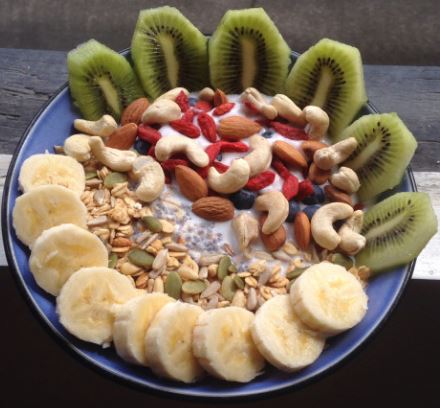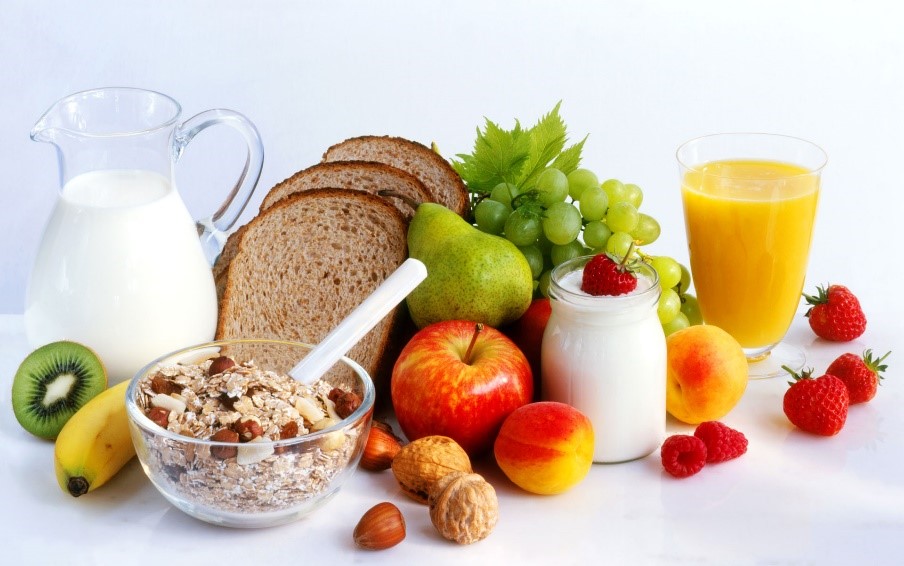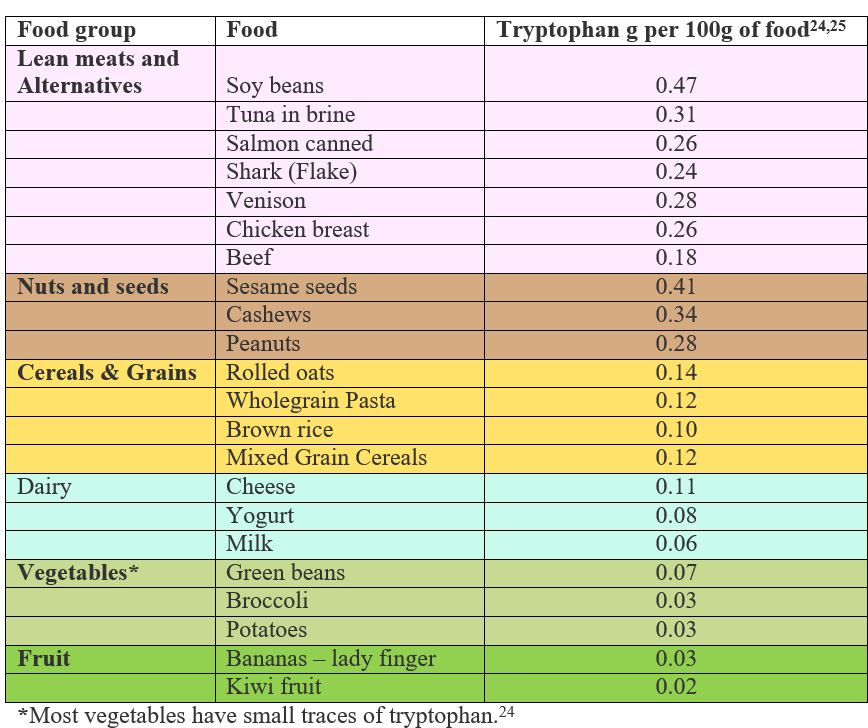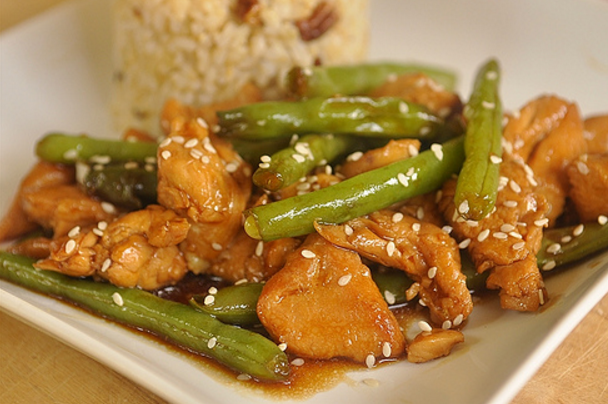If you are lying awake at night unable to sleep, you are not alone, as over 30-50% of the world’s population suffers from insomnia at some stages throughout life, especially if you are a woman aged over 30 years old.1,2,3,4,5,6
Researchers have found that women in this age bracket who are either divorced, separated or widowed; and or working in management roles; or perhaps earning below the average income, are more likely to suffer most from insomnia.4.7 While hormonal fluctuations during menstruation, pregnancy and menopause have been found to cause Insomnia.8
Insomnia means “no sleep” in Latin. It can range in duration from:
- Transient – lasting up to a few days.9
- Acute – short term – lasting up to 3 weeks. It generally ends once a problem ends or the source of the stress is gone or adjusted to.9
- Chronic – effects sleep at least 3 nights a week for a month or longer.8,9
How lack of sleep can affect you functioning normally:
Chances are your brains functioning is not at its optimal level, if you do not sleep well. You could be suffering symptoms of feeling lethargic, irritated and anxious, which can reduce your productivity at work and effect relationships.1,9
Transient and acute insomnia can affect your health, intermittently, by reducing the immune system leading you more vulnerable to infectious diseases and additionally, increasing appetite, leading to weight gain.
While chronic insomnia is problematic and leads to risk factors of physiological and psychological disorders,8 such as:
- Psychological disorders: Anxiety, depression, dementia, compulsive eating10
- Physiological disorders: Obesity, headaches, asthma, fibromyalgia, rheumatoid arthritis, osteoporosis, hypertension, myocardial infarction and stroke.9.11
What causes insomnia?
There are many causes that have been linked to insomnia, such as:
Transient and acute insomnia causes: Many studies have found stressful situations, acute illnesses, injuries, women’s hormonal fluctuations, surgery, shift work, jet lag, high sugar and fat consumption, excessive alcohol consumption, nicotine, caffeine, nutrient deficiencies, certain medications and emotional eating when stressed tends to be the cause of insomnia.1,2,3,4,7,9,10,12,13,14
Chronic Insomnia causes:
Chronic insomnia can be inherited – continued sleep deprivation becomes harder to treat and has been found to cause genetic changes, which become hereditary.1,12
The effects of insomnia can become a viscous cycle with the symptoms causing insomnia. Chronic pain from physiological disorders such as: arthritis, heart problems, migraines, fibromyalgia, rheumatoid arthritis, osteoporosis, hypertension, tinnitus and restless legs syndrome can each cause insomnia.9,12,15,16
Natural remedies:
There are alternatives to prescriptions or over the counter medication which can become habit forming or have possible side effects with long term use.3,14 Rest assured, there are a variety of natural alternatives to help with insomnia.6,17 Naturopaths and Nutritionists recommend relaxation techniques, herbal teas, making the sleeping environment comfortable, avoiding stimulants and dysfunctional foods and including functional nutritional foods.6,14,17 Additionally, nutrient supplements are available, although some studies have found they are not always safe.15,16,18,19
 How can nutritional components in foods help you sleep:
How can nutritional components in foods help you sleep:
Certain foods are beneficial to promote sleep! Researchers first started testing functional foods containing tryptophan in the 1960’s.3,5,14,15,16
Tryptophan is an essential amino acid, found in foods containing protein, which is essential for our body to synthesis serotonin and melatonin, needed for promoting and regulating sleep.10,15,19
- Serotonin functions as a neurotransmitter in the nervous system, which also regulates the appetite, mood, memory and learning. In the gastrointestinal tract it is important for our smooth muscle contraction.9,10,17,18,19
- Melatonin is a hormone released when we are in darkness to regulate circadian rhythms and sleep.10,14,17,19 Research has found that simply increasing foods containing tryptophan is not all that is required to enhance sleep.10,15,18 Other amino acids compete against tryptophan to cross the blood brain barrier, such as tyrosine, a large stimulating amino acid also found in high protein foods.10,15,19 In order to give tryptophan preference it is vital to combine the correct types of food. In a randomised control trial, high protein foods were consumed with sufficient amounts of carbohydrate, to increase insulin levels to reduce competition of the other large amino acids, allowing tryptophan to synthesise serotonin and melatonin, thereby, improving sleep.15
Additionally, a Dutch study found 618mg of dietary tryptophan per day over a week, reduced insomnia and improved sleep quality.5
Furthermore, you may wake up after a few hours if you have insufficient minerals, of calcium, potassium and magnesium. They are required by the nervous system to function properly, helping to control sleep patterns and help relax muscles, especially during sleep.1,10,18
Tryptophan Supplements – are they safe?
Tryptophan supplements have been on the market for over 30 years to promote sleep, with varying dosages ranging from 250mg to 5 grams.3,14,16 Dosages of 500 mg taken 1-3 hours before bed time, have enhanced sleep.14
However, the supplement has warnings! In 1989 the US Food and Drug Administration (FDA) recalled a Japanese manufactured tryptophan supplement, as 1,500 consumers developed a rare blood disorder, Eosinophilia-myalgia syndrome (EMS), basically an overload of certain white blood cells, where too many cause damage.13,20,21 The Japanese supplement was found to have impurities which caused muscle pain, high fever and more than 35 deaths.13,20,21 The FDA ended up lifting the ban in 2005, with a warning that high dose supplements may trigger the disorder.22,23 Since then, there has only been 1 case, in 2009, of EMS linked to 1,500 mg daily supplement intake, although it was not proven if the supplement was free of impurities.23
Therefore, it is suggested to those who wish to take the supplement to limit the intake between 3.5 to 6 grams per kg of body weight per day, and discontinue when healthy sleep patterns return. Or, simply try the safer alternative of eating the naturally occurring tryptophan from your food, the way nature intended it to be.
Try to include some the sleep enhancing foods listed and try the “Sleep enhancing evening meal” while following the tips to help you get a good nights’ sleep.
Sleep enhancing foods containing tryptophan:
Enhancing sleep tips:
- Breakfast: wholegrain cereal with milk and a sliced banana.1,2,13
- Eat sleep enhancing foods.1,2,3,5,14,15,17,25
- Combine carbohydrate food with protein rich foods, such as brown rice with chicken or fish.14,15
- Exercise 30 minutes throughout the day26
- Before bed – warm milk and a whole meal cracker.2,14
- Yoga and meditation for relaxation3,17
- Herbal teas – chamomile and valerian are relaxing herbs3,17
- A few drops of lavender or marjoram essential oil in an oil burner.3,17
Thing to avoid:
- Reduce caffeine and sugary foods – these are stimulants.1,2,7,13
- Nicotine is also a stimulant – therefore try not to have a smoke before going to bed.7,14
- Some prescription medications are stimulants check with you doctor or pharmacist.3,7
- Alcohol – avoid within four hours from going to bed.7,19
- Large meals, fatty and spicy food at the evening meal.1,2,7
- Long day time naps. 3,7
- Avoid exercise at least 3 hours before bed.7,26
- White bread and white rice – switch to wholegrain1,2,13
- TV and computer before bed.14
Sleep enhancing evening meal:
Chicken, vegetable and cashew sleepy stir fry:
Ingredients:
2 cups Brown rice and 4 cups of water
450g Chicken breast, chopped in 2-3 cm cubes or Soy beans (vegetarian alternative)
3 tbsp Chickpea or corn flour.
2 tbsp Sesame oil
1 Brown onion, finely chopped
2 cloves of crushed garlic
1 tssp each of turmeric, cumin and paprika
Pinch of salt and pepper
2 large carrots, sliced thinly
200g or 1 ½ cups green beans
2 tbsp lemon juice
1 cup water
½ cup of cashews
Method:
- Bring 2 cups of brown rice in 4 cups of water to boil, once boiled, reduce heat, place a lid on the saucepan and gently simmer until water is absorbed in 15 minutes.
- Toss chicken pieces in flour,
- Brown chicken, in heated pan with sesame, remove chicken.
- Add onion and garlic to saute
- Add turmeric, cumin, paprika, salt and pepper, for 2 minutes
- Add lemon juice and water, stir
- Add cooked chicken, carrot and beans, simmer and stir for 15 minutes
- Stir through cashews and serve on a bed of brown rice.
Try to find a combination of the tips that work best for you to get you back to a healthy sleeping pattern.
References:
- Zeng Y. Yang J. Du J, Pu X, Yang X, Yang S. Yang T. Strategies of functional foods promote sleep in human being. Curr Signal Transduct Ther. 2014 Dec; 9(3): 148–155.
- Dweck JS. Jenkins SM. Nolan LJ. The role of emotional eating and stress in the influence of short sleep on food consumption. Appetite. 2014;72:106-13.
- Sarris J. Byrne GJ. A systematic review of insomnia and complementary medicine. Sleep Med Rev. 2011;15(2):99-106
- Morin CM. LeBlanc M. Bélanger L. Ivers H. Mérette C. Savard J. prevalence of insomnia and its treatment in canada. Can J Psychiatry. 2011;56.9: 540-548
- Verster J. Fernstrand A. Bury D. Roth T. Garssen J. The association of sleep quality and insomnia with dietary intake of tryptophan and niacin. Sleep Med. 2015;16(1):191
- LeBlanc M. Mérette C. Savard J. Ivers H. Baillargeon L. Morin CM. Incidence and risk factors of insomnia in a population-based sample. Sleep. 2009;32(8):1027-1037.
- Fuller JM. Wong KK. Krass I. Sleep disorders screening, sleep health awareness, and patient follow-up by community pharmacists in Australia. Patient Educ Couns. 2011;83(3):325-335.
- Morin CM. Benca R. Chronic insomnia. Lancet. 2012;379(9821):1129–1141.
- Sivertsen B. Lallukka T, Salo P, Pallesen S, Hysing M, Krokstad S, Øverland S. Insomnia as a risk factor for ill health: results from the large population-based prospective hunt study in norway. J Sleep Res. 2014; 23(2):124-32.
- Hashizume Y. The importance of sleep in the mental health. Nihon Rinsho. 2014 Feb; 72(2):341-6.
- Tagaya H, Murayama N, Hakamata Y. Sleep disorders. Nihon Rinsho. 2014;72(4):739–43.
- Ban H, Kim S, Seo J, Kang H, Choi J. Genetic and Metabolic Characterization of Insomnia. PLoS One. 2011;6(4):e18455.
- Whitney EN, Rolfes SR, Crowe T, Cameron-Smith D, Walsh A. Understanding nutrition: Australian And New Zealand Edition. 2nd ed. South Melbourne: Cengage Learning Australia; 2014
- Tweed V. Basic remedies for sleep. Better Nutrition. 2012;74.5:8
- Hudson C, Hudson S, Hecht T, MacKenzie J. Protein source tryptophan versus pharmaceutical grade tryptophan as an efficacious treatment for chronic insomnia. Nutr Neurosci. 2005;8(2):121-127.
- Demisch K. Bauer J. Georgi K. Demisch L. Treatment of severe chronic insomnia with L-tryptophan: results of a double-blind cross-over study. Pharmacopsychiatry. 1987;20(6):242–244
- Braun L. Cohen M. Herbs & natural supplements. 3rd Sydney: Elsevier Australia, 2010.
- Schneider-Helmert D. Spinweber C. Evaluation of l-tryptophan for treatment of insomnia: A review. Psychopharmacology. 1986;89(1).
- Gropper S, Smith J. Nutrition and human metabolism. Mason, Ohio: Cengage Learning; 2013.
- Barešić M, Bosnić D, Bakula M, Žarković K. Eosinophilia-myalgia syndrome induced by excessive L-tryptophan intake from cashew nuts. Cent Eur J Med. 2014;9(6):796-801
- Smith M. Garrett R. A heretofore undisclosed crux of eosinophilia-myalgia syndrome: compromised histamine degradation. Inflamm res. 2005;54(11):435-450.
- Zangrilli JG1, Mayeno AN, Vining V, Varga J.1,1′-Ethylidenebis[L-tryptophan], an impurity in L-tryptophan associated with eosinophilia-myalgia syndrome, stimulates type I collagen gene expression in human fibroblasts in vitro. Biochem Mol Biol Int.1995;37(5):925-33.
- Allen J, Peterson A, Sufit R, Hinchcliff M, Mahoney J, Wood T et al. Post-epidemic eosinophilia-myalgia syndrome associated with L-tryptophan. Arthritis & Rheum. 2011;63(11):3633-3639.
- gov.au. NUTTAB 2010 [Internet]. 2016 [cited 2016 Apr 19]. Available from: http://www.foodstandards.gov.au/science/monitoringnutrients/nutrientables/pages/default.aspx
- Hidayati T. Seftaviani N. Munifah H. Arditapramesti AHP. Nurisa RL. Benefit of brown rice feeding on elderly insomnia. Int J Public Health Sci. 2015;4(3).
- Melancon MO. Lorrain D. Dionne IJ. Exercise and sleep in aging: emphasis on serotonin. Pathol. Biol. 2014;62(5):276-283
Image references:
- Groovy green livin. Women with insomnia [Image on the internet] 2012. [cited 2016 Apr 27]. Available from: http://www.blogher.com/how-beat-insomnia-naturally.
- Medical news today. Shift worker suffers insomnia [Image on the internet} 2015. [cited 2016 Apr 28]. Available from: http://www.medicalnewstoday.com/articles/9155.php
- Scent from nature. Pure essential oils [Image on the internet] 2009. [cited 2016 Apr 29] Available from: http://scentfromnature.com.au/
- Tumbler. Soy yoghurt [Image on the internet] 2015. [cited 2016 Apr 29] Available from: https://www.tumblr.com/search/soy-yogurt
- Sleep enhancing foods. [Image on the internet] 2013. [cited 2016 Apr 29]. Available from: http://rbk.h-cdn.co/assets/cm/14/50/548b64678d2f7_-_rbk-vitamins-your-diet-is-lacking-balanced-s2.jpg.
- Your homebased mum. Chicken with green beans [Image on the internet] 2011. [cited 2016 Apr 27]. Available from: http://www.yourhomebasedmom.com/chicken-green-bean-stir-fry/.





